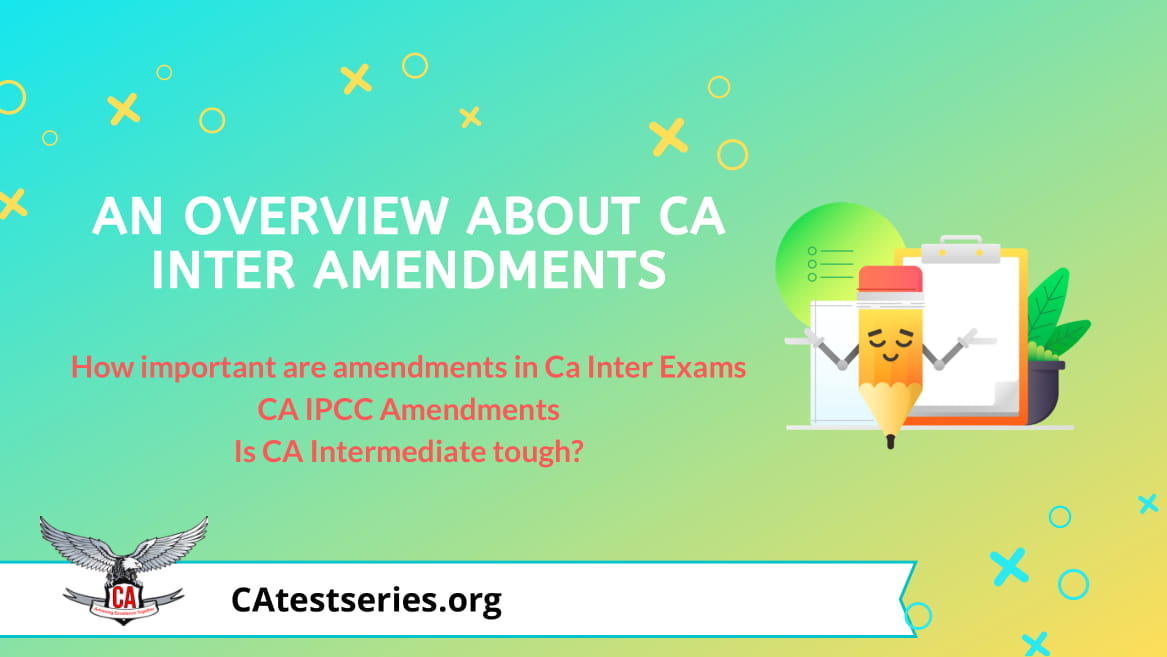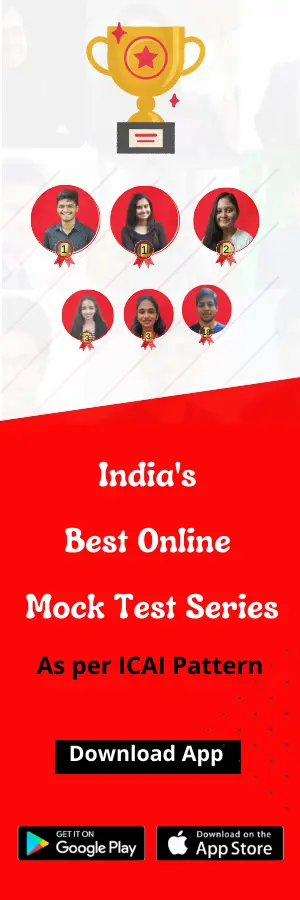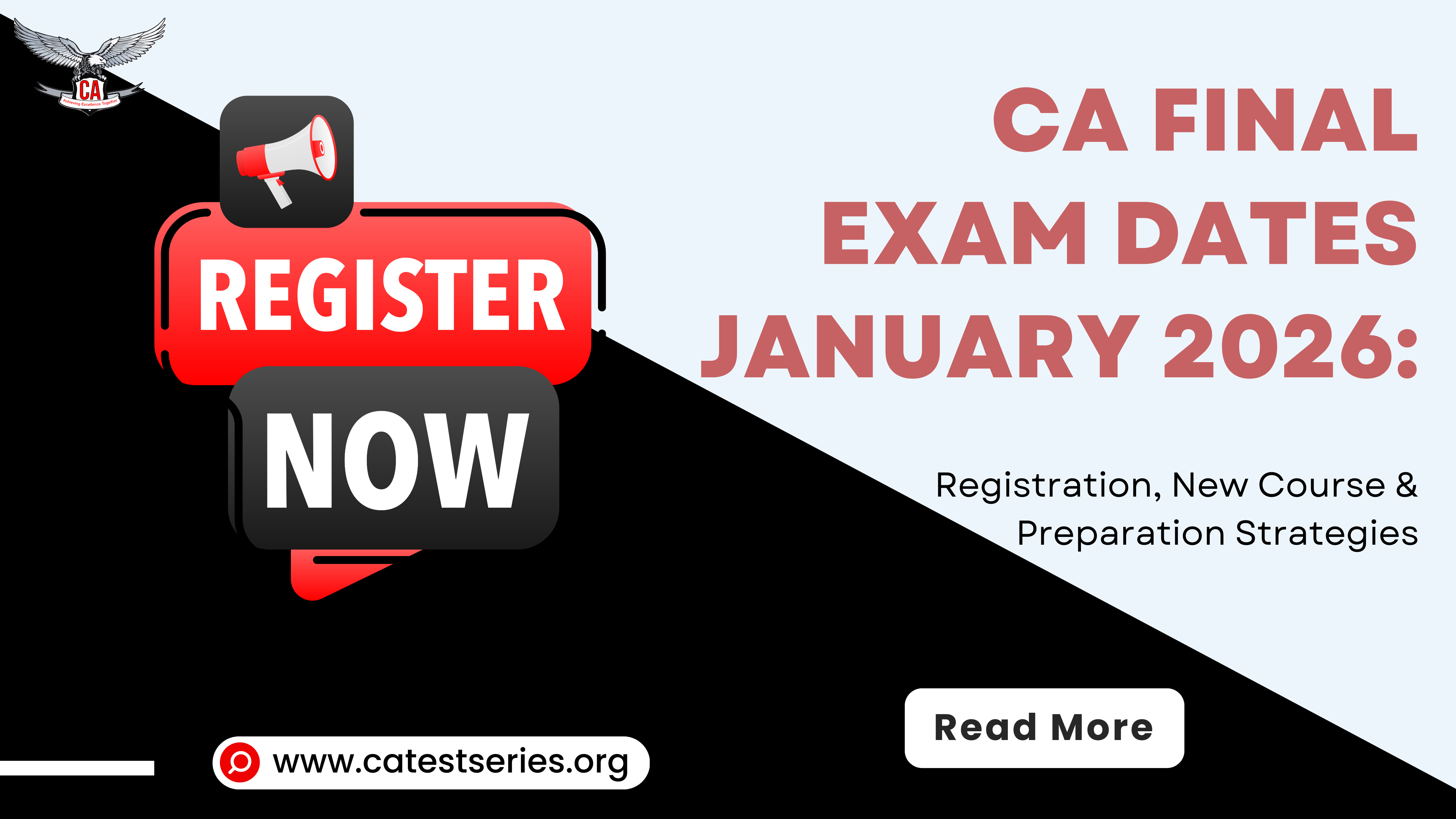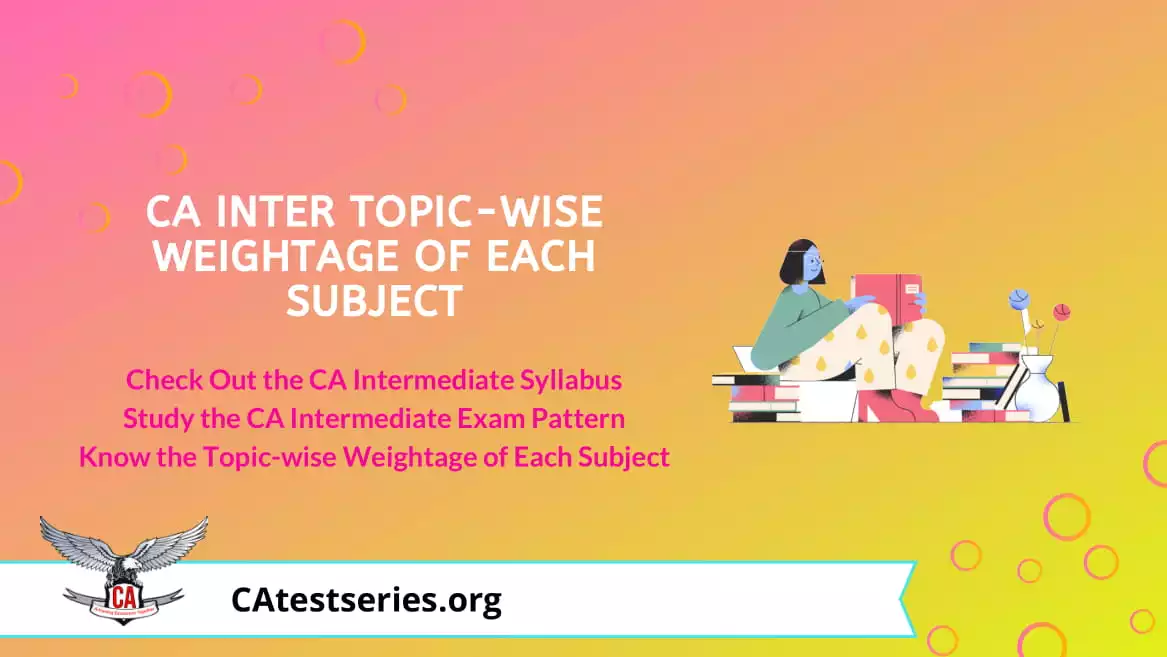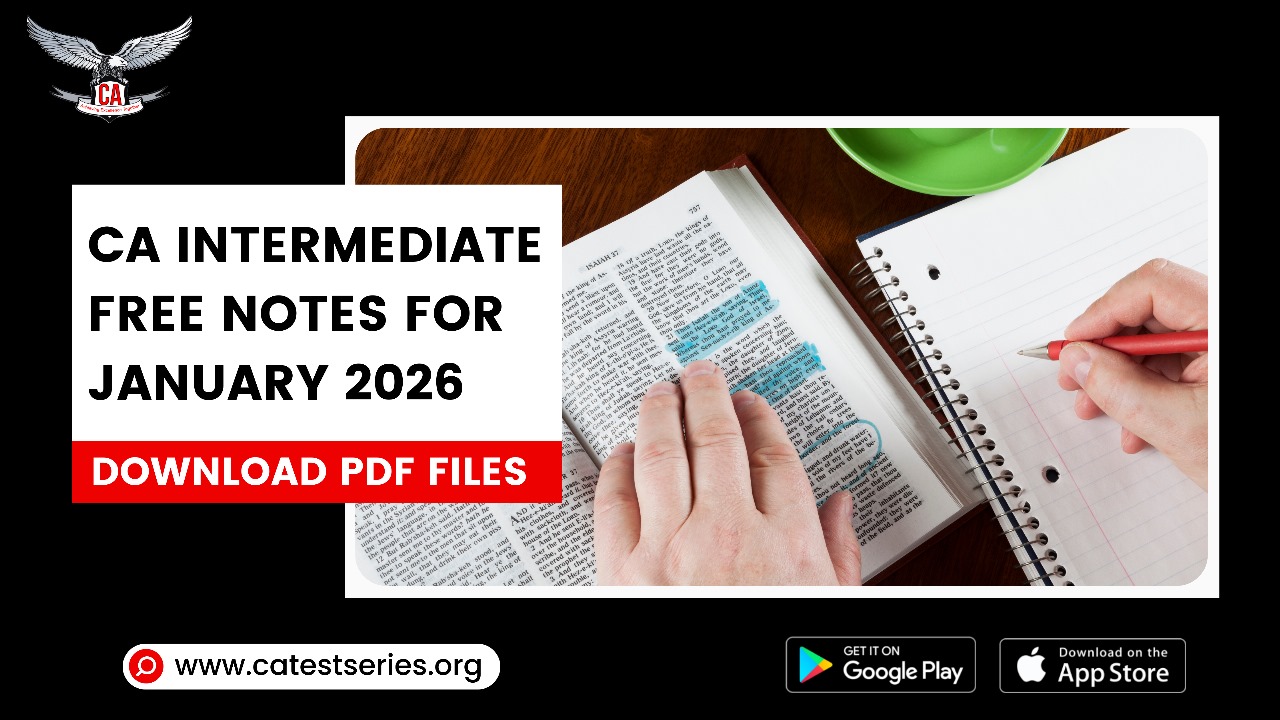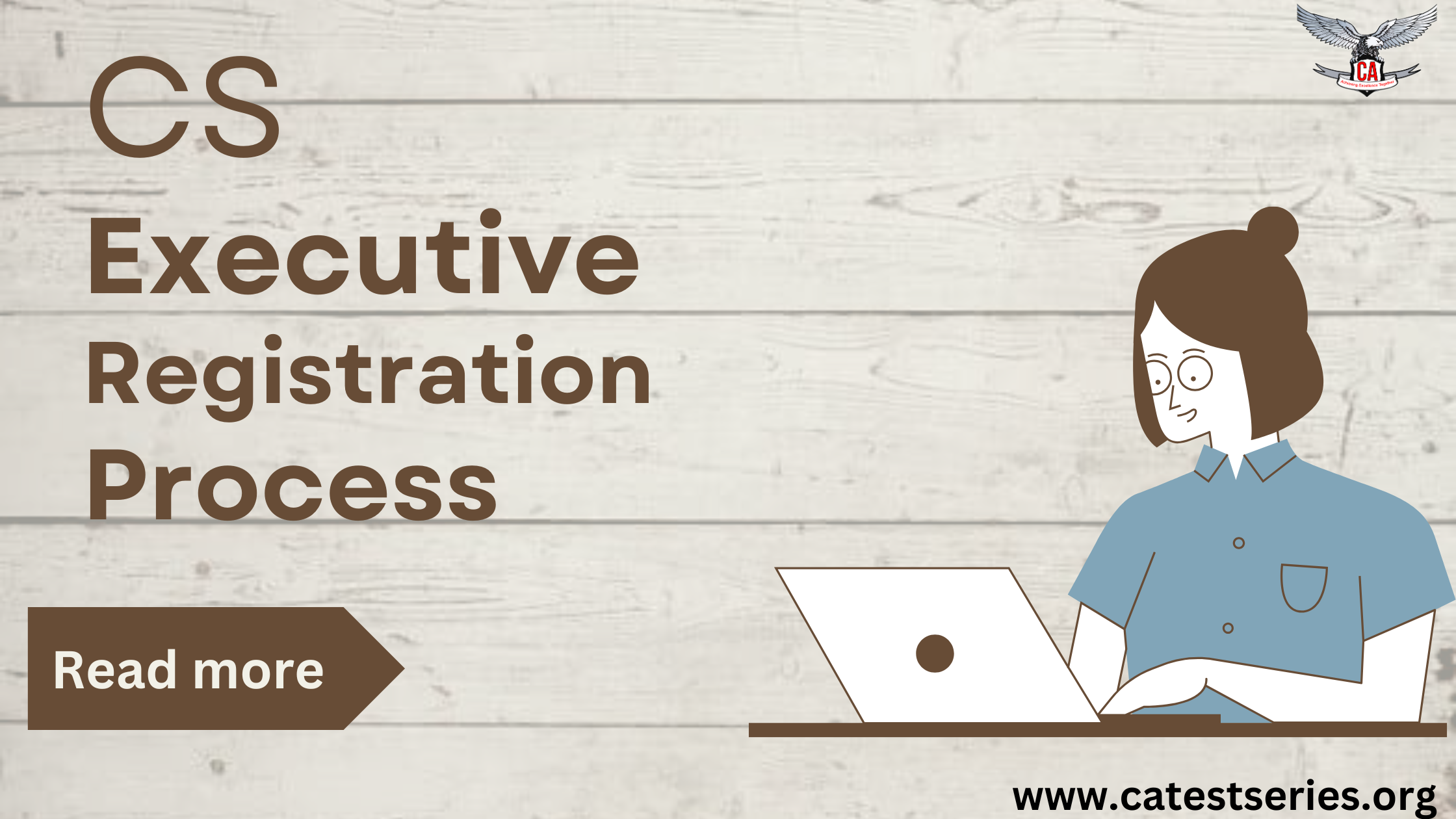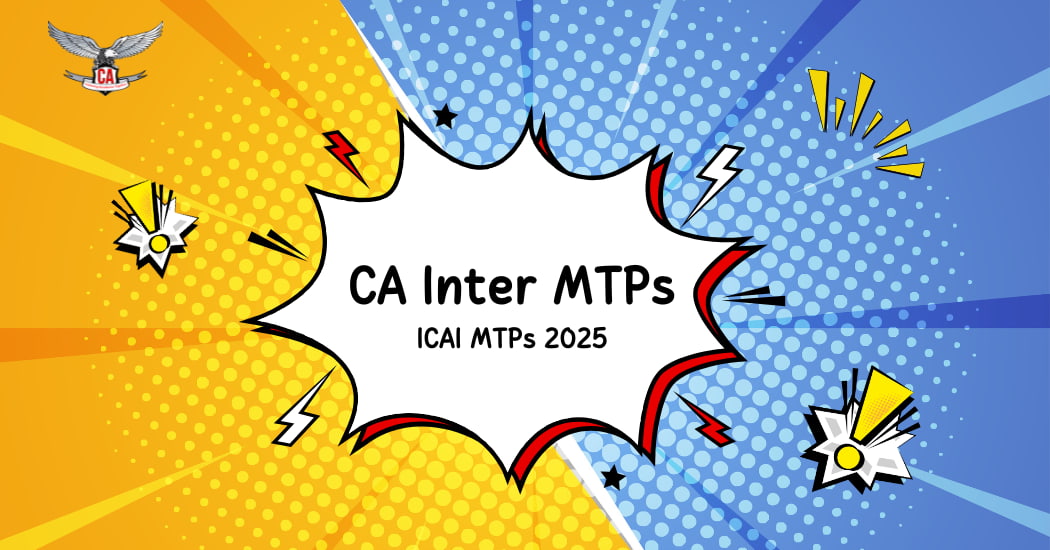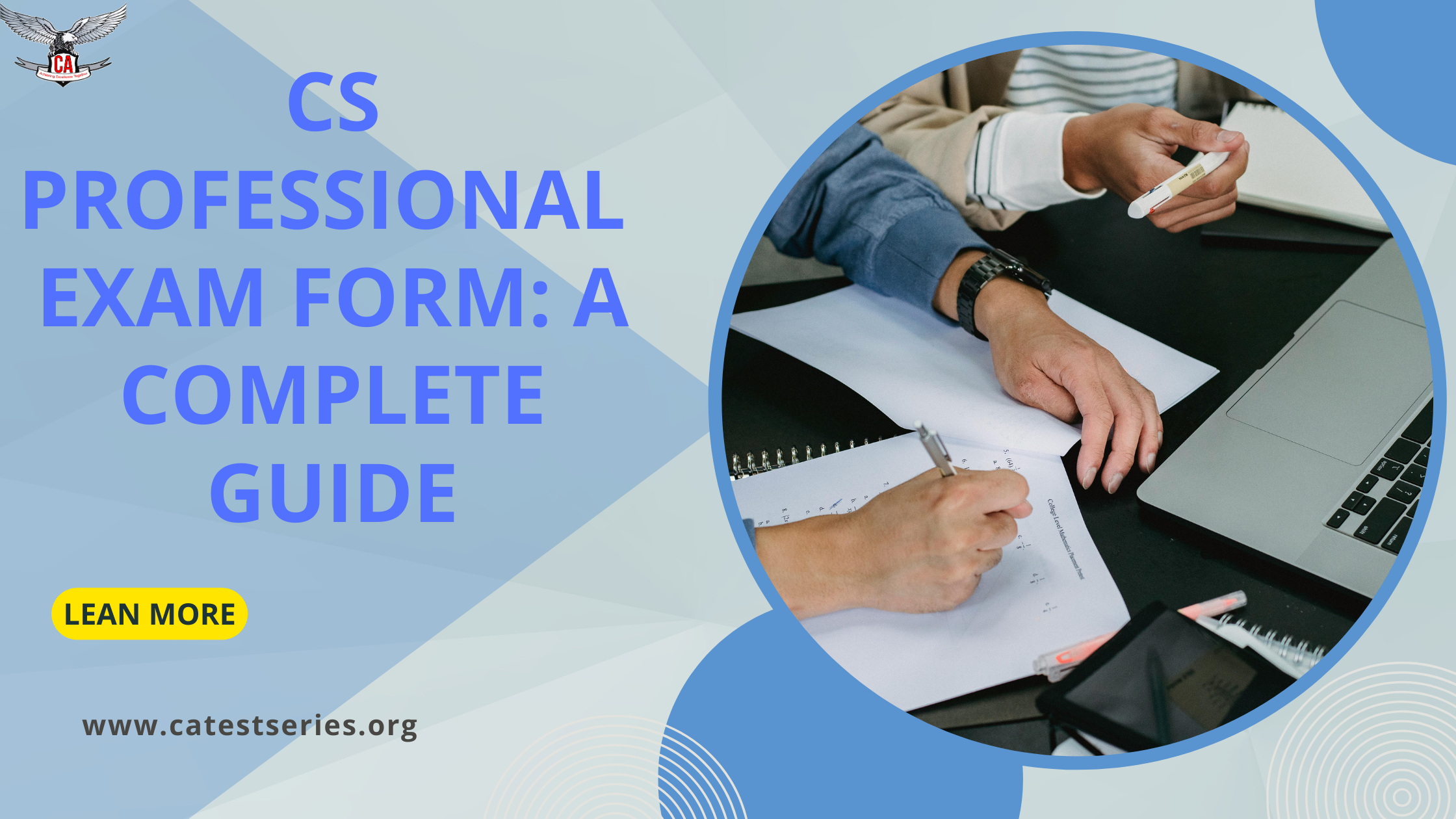CA Inter Amendments For September 2025
With the constant changes happening in law it is very important for ca students to be in line and keep themselves updated about the happening of the real world. And for this reason, only ICAI issues amendments through RTPs or Revision Test Papers before every attempt which is applicable in the upcoming exams. Not just for general knowledge it is very important for all the ca aspirants to stay updated with all the amendments.
CA Inter Amendments
- CA Inter Accounting Amendments for September 2025 Exams : Applicable accounting standards
- Disclosure of accounting policies.
- Valuation of inventories.
- Cash flow statements.
- Contingencies and events occurring after the balance sheet date.
- Net profit or loss for the period, prior period items and changes in accounting policies.
- Property, plant, and equipment.
- The effects of changes in foreign exchange rates.
- Accounting for investments.
- Borrowing costs.
- Segment reporting.
- Accounting for taxes on income.
Partnership, AS – 4,5,17,20 has been removed from Group 1 and shifted into Group 2 Advance Accounting. Redemption of debenture will be asked as per topics of New study material applicable for September 2025 exams.
AS - 1,2,3,10,14,14,13 and 16 is only applicable for CA Inter September 2025 Exams.
2. CA Inter Corporate and other laws Amendments for September 2025
From companies act various important sections has been removed. Sec 24, 30,33,38 and 41 from chapter 3 of companies act – Prospectus and allotment of securities.
Section 44,45,60,65 and 72 of Share capital and debenture, Chapter – 4
Section 75 from Acceptance of deposits by companies, chapter – 5
Section 81 and 85 of Registration of charge, chapter – 6
There is only little exclusion in Indian Contract act. Questions based on Sec 1 to 142 will not be asked in exams. But there are certain inclusions which are given in latest study material of ICAI.
- Company law :
Inclusions - The entire syllabus included in the revised July 2019 edition of the study material and the legislative amendments given in the RTP of May 2020.
Exclusions - Except for the relevant rules as covered in the revised July 2019 edition of the study material and the RTP, all the rules of companies act 2013 are excluded.
- Other laws:
Inclusions - The Indian Contract Act, The negotiable instruments act 1881, the general clauses act 1897, Interpretation of Statues covers significant provisions in a broad manner. The entire syllabus included in the revised July 2017 edition.
Exclusion - Questions that involve the reference or questions entirely based on sections 1 to 142 of the Indian Contract Act, 1872 may be avoided.
Student should refer new study material Available here - https://www.icai.org/post.html?post_id=15790 for September 2025 exams
3. Taxation A: The provisions of income tax law, as amended by the finance act, 2019 including significant circulars and notifications issued up to 31st October 2019. The relevant assessment year for income tax A.Y. 2020-21.
CA Inter Taxation – Income Tax Amendments for September 2025 Exams
RESIDENTIAL STATUS
Note : AY 2020-2021 means PY 2019-2020. Month of February will fall in 2020. is a leap year. We will take 29 days and not 28 days for the purpose of calculation of number of days in determination of residential status.
INCOMES DEEMED TO ACCRUE OR ARISE IN INDIA : SECTION 9
AY 2019-2020 | AY 2020-2021 |
| Section 9(1)(viii) [new section] | |
| ----- | • If any sum of money referred u/s 56(2)(x) i.e. |
| GIFT | |
| • has been paid / given outside India | |
| • on or after 5/7/2019 | |
| • by resident | |
| • to non-resident or to foreign company | |
| • shall be deemed to accrue or arise in India | |
CALCULATION OF TAX LIABILITY
No change in the slab rate
REBATE UNDER SECTION 87A
AY 2019-2020 | AY 2020-2021 |
Income tax rebate shall be provided to the persons who fall under the lower income tax bracket if both of the following conditions are satisfied: (a) Assessee is an individual who is a resident of India. (b) Total income of such individual is less than or equal to Rs. 3,50,000 The amount of the rebate shall be lower of:
| Income tax rebate shall be provided to the persons who fall under the lower income tax bracket if both of the following conditions are satisfied: (a) Assessee is an individual who is a resident of India. (b) Total income of such individual is less than or equal to Rs. 5,00,000 The amount of the rebate shall be lower of:
|
Note: Health and Education Cess shall be imposed only after allowing rebate u/s 87A
INCOME FROM SALARY
STANDARD DEDUCTION u/s 16(ia)
AY 2019-2020 | AY 2020-2021 | ||
Standard deduction is allowed from Gross Salary and it is lower of— | Standard deduction is allowed from Gross Salary and it is lower of— | ||
(a) | Rs 40,000 or | (a) | Rs 50,000 or |
(b) | the amount of Gross Salary. | (b) | the amount of Gross Salary. |
Check all amendments from this link - https://www.icai.org/post.html?post_id=15923
4. Taxation B: The provisions of the CGST Act 2017 and IGST Act 2017, including significant circulars and notifications issued up to 31st October 2019.
CA Inter GST Amendments for September 2025Exams
(1) | (2) | (3) |
| S.No. in the syllabus | Topics of the syllabus | Exclusions (Provisions which are excluded from the corresponding topic of the syllabus) |
2(ii)(c) | Charge of tax including reverse charge | CGST Act, 2017
IGST Act, 2017
Intra-State supply; Supplies in territorial waters (viii)Special provision for payment of tax by a supplier of online information and database access or retrieval [OIDAR] services |
2(ii)(d) | Exemption from tax | CGST Act, 2017 & IGST Act, 2017 (i) Exemptions for supply of goods |
| 2(iii) | Basic concepts of time and value of supply | CGST Act, 2017 & CGST Rules, 2017
|
| 2(iv) | Input tax credit | CGST Act, 2017 read with CGST Rules, 2017
|
2(viii) | Returns | CGST Act, 2017 read with CGST Rules, 2017
|
| 2(ix) | Payment of tax | CGST Act, 2017
|
*Rates specified for computing the tax payable under composition levy and special rate of tax prescribed under Notification 2/2019 CT (R) dated 07.03.2019 [Effective rate 6% - CGST 3% & SGST 3%] are included in the syllabus.
Notes:
- Applicability of the Finance (No. 2) Act, 2019
- Part I : GST – The amendments made by the Finance (No. 2) Act, 2019 in the provisions of the Central Goods and Services Act, 2017 [hereinafter referred to as CGST Act, 2017] and Integrated Goods and Services Tax, 2017 [hereinafter referred to as IGST Act, 2017], to the extent included in the syllabus read with the Study Guidelines, have not become effective till 31.10.2019.
Therefore, the amendments made by the Finance (No. 2) Act, 2019 in the CGST Act, 2017 and the IGST Act, 2017 are not applicable for September 2025 examinations. It may be noted that since rate of tax on goods is specifically excluded from the syllabus, retrospective amendments made in the rate Notification Nos. 2/2017 CT (R) & 2/2017 IT (R) both dated 28.06.2017 are also excluded from the syllabus.
- Sabka Vishwas (Legacy Dispute Resolution) Scheme, 2019 introduced vide Chapter V of the Finance (No. 2) Act, 2019 is not applicable for September 2025 examinations.
- The former State of Jammu & Kashmir has been reorganized as the new Union Territory of Jammu and Kashmir and the new Union Territory of Ladakh on 31st October 2019. Such reorganisation, to the extent relevant in the context of GST law, shall not be applicable for September 2025 examination.
- The syllabus includes select provisions of the CGST Act, 2017 and IGST Act, 2017 and not the entire CGST Act, 2017 and the IGST Act, 2017. The provisions covered in any topic(s) of the syllabus which are related to or correspond to the topics not covered in the syllabus shall also be excluded.
- In the above table, in respect of the topics of the syllabus specified in column (2) the related exclusion is given in column (3). Where an exclusion has been so specified in any topic of the syllabus, the provisions corresponding to such exclusions, covered in other topic(s) forming part of the syllabus, shall also be excluded. For example, since provisions relating to ISD and tax collection at source are excluded from the topics “Input tax credit” and “Payment of tax inc luding reverse charge” respectively, the provisions relating to (i) registration of ISD and person required to collect tax at source and (ii) filing of returns by an ISD and submission of TCS statement by an electronic commerce operator required to collect tax at source are also excluded from the topics “Registration” and “Returns” respectively.
- August 2019 edition of the Study Material is relevant for September 2025 and November 2025 examinations. The amendments in the GST law - made after the issuance of this Study Material - to the extent covered in the Statutory Update for September 2025 examination alone shall be relevant for the said examination. The Statutory Update will be hosted on the BoS Knowledge Portal.
- The provisions of CGST Act, 2017 and the rules issued thereunder and IGST Act, 2017 and the rules issued thereunder, to the extent included in the August 2019 edition of the Study Material ( except the exclusions mentioned herein) and the Statutory Update for September 2025 examination shall alone be relevant for the said examination.
5. CA Inter Advanced Accounting Amendments in September 2025 Exams :
- Construction Contracts.
- Revenue recognition.
- Accounting for amalgamations.
- Related party disclosures.
- Leases.
- Earnings per share.
- Discontinuing operations.
- Intangible assets.
- Provisions, contingent liabilities and contingent assets.
Partnership and AS – 4,5,17,20 has been inserted in CA Inter advance accounting syllabus for September 2025
AS 4,5,7,9,14,17,18,19,20,22,24,26 and 29 are applicable for September 2025 CA Inter exams
Under-writing, guidance notes, valuation of goodwill, insurance company, mutual fund are removed from the CA Inter advance accounting.
6. CA Inter Auditing and Assurance Amendments for September 2025 Exams :
- List of applicable statements and standards for the September 2025 examination.
- Statement on reporting under section 227(1A) of the companies act 1956 section 143 of the companies act 2013.
- Engagements and quality control standards on auditing for September 2025 examination.
- Guidance note on the audit of inventories.
- Guidance note on the audit of debtors, loans, and advances.
- Guidance note on the audit of investments.
- Guidance note on the audit of cash and bank balances.
- Guidance note on audit of liabilities.
- Guidance note on the audit of revenue.
- Guidance note on reporting under section 143(3) (f) and (h) of the companies act 2013.
- Applicability of the companies acts 2013 and other Legislative Amendments for September 2025 examination.
Check It, Sec 143(3) Audit Report Amendment For September 2025
7. CA Inter Enterprise information system and Strategic Management (EIS-SM) Amendments for September 2025 Exams
Ch - AUTOMATED BUSINESS PROCESS
a) New point added in Risks and its Management
b) Types of risks – Strategic Risk, Financial Risk, Regulatory Risk, operational risk, Hazard Risk, Residual Risk and technology risks.
c) Risk management strategies
d) Additional points in Enterprise risk management Framework
Ch - FINANCIAL AND ACCOUNTING SYSTEMS
a) Installed v/s web Applications – this point is to be added under Installed Applications V/s Cloud-based Applications
b) Instead of Advantages of an ERP system, new points in Benefits of an ERP System are included.
c) Instead of point - Risk in an ERP Environment & Point - Risk Associated & control required, Risks and Controls in an ERP Environment point is to be added
d) Instead of Explanation to Point – Controlling Module – explanation is to be replaced with new points)
e) Production Planning (PP) Module - Material Requirements planning relies on demand and supply elements with the calculation parameters to calculate the net requirements from the planning run. Is newly added
f) Quality Management Module – additional points like Quality planning, Quality control, Quality assurance and quality improvement has been included.
g) Plant Maintenance Module - Objectives of Plant Maintenance Module, new points included
h) New points included in Project system module, Supply chain module and business intelligence.
Ch - INFORMATION SYSTEMS AND ITS COMPONENT
Additional points included in Big Data – Benefits of Big Data Processing are as follows:
i) Ability to process Big Data brings in multiple benefits, such as-
- Businesses can utilize outside intelligence while taking decisions.
- Access to social data from search engines and sites like Facebook, Twitter are enabling organizations to fine tune their business strategies.
- Early identification of risk to the product/services, if any
ii) Improved customer service - Traditional customer feedback systems are getting replaced by new systems designed with Big Data technologies. In these new systems, Big Data and natural language processing technologies are being used to read and evaluate consumer responses.
iii) Better operational efficiency - Integration of Big Data technologies and data warehouse helps an organization to offload infrequently accessed data, this leading to better operational efficiency.
Ch - E-COMMERCE, M-COMMERCE AND EMERGING TECHNOLOGY
Additional points included in introduction to e-commerce and its application
Ch - CORE BANKING SYSTEM
Additional points included in Key modules of CBS, Risks associated with CBS, Prevention of Money Laundering Act, Information Technology Act, Section 43: Penalty and compensation for damage to computer, computer system, etc. and Section 43A: Compensation for failure to protect data. The relevant notified Sections of the companies act 2013 and legislative amendments including relevant notifications/ circulars/ rules/ guidelines issued by regulating authority up to 31st October 2018 will be applicable for September 2025 examination. It may be noted that significant notifications and circulars issued between 01.05.2017 and 31.10.2018, which are not covered in the July 2017 edition of the study material, would be given as statutory update in the revision test paper for September 2025 examination.
How important are amendments in the CA Exams
One should never even ask this question. Amendments are very important for the CA exams. A good chunk of marks can be achieved by preparing the amendments. With the onset of multiple-choice questions, the amendments become all the way more important. In CA exams, it is very important to be detail-oriented. If you havent studied thoroughly then you might be tricked by the questions, especially in the theory subjects like law.
Preparing for CA Inter is not everyones cup of tea. But if youve made your mind that you want to do it and add that CA prefix to your name. Focus on your goal and stay determined. Practice as much as you can with CA mock test series. Never try skipping any topic from the syllabus thinking it is not that important or it might not appear in the examination. Because these competitive exams are so unpredictable. You never know what question they might ask with what logic.
Related:

